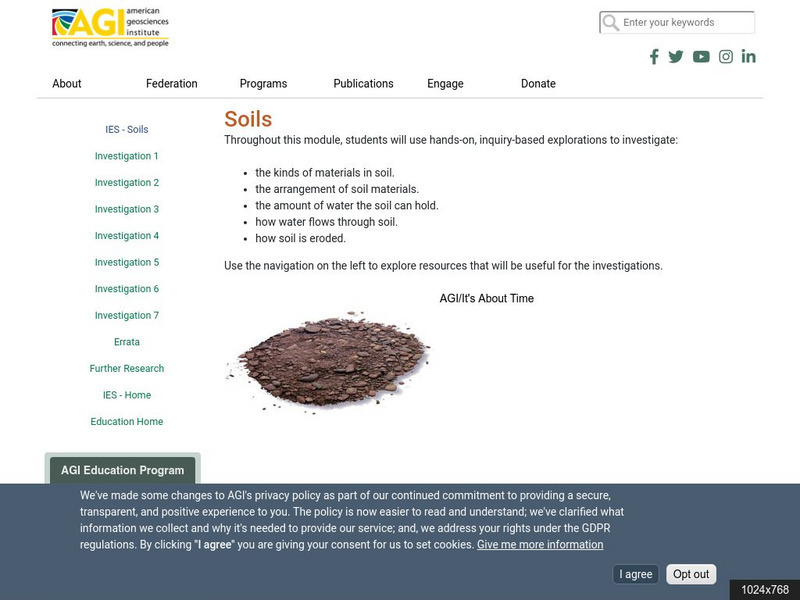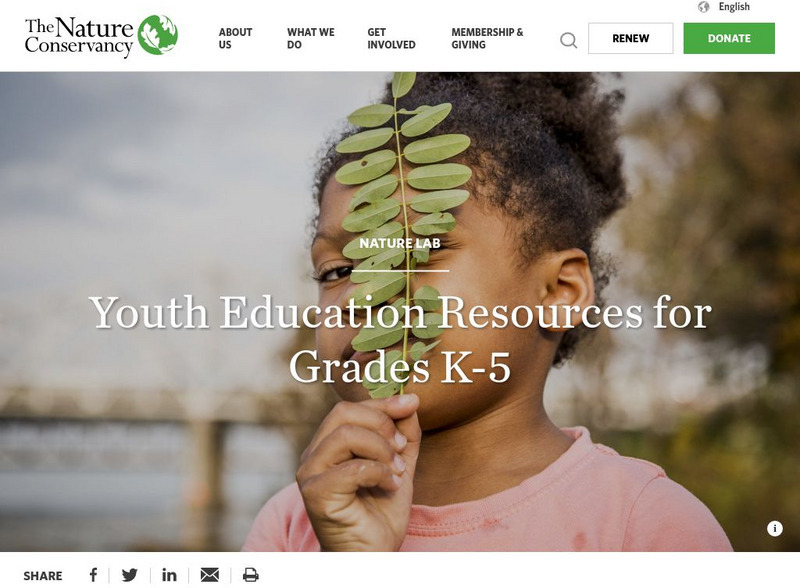Curated OER
Biotic Factors
Students identify individual organism, a species, and a population within the study community. They identify biotic factors at the site and attempt to characterize the site's species diversity.
Curated OER
Don't Trust Your Eyes
Students brainstorm a list of possible actions that they could do to protect the water resources from pollution. They create hypotheses and conclusions by completing experiments and observing different pollutants.
Curated OER
Lets Think About...Plants
Students bring in various vegetables and make friendship soup. They plant seeds and discuss the things plants need to grow and thrive.
Curated OER
Water Pollution Lesson Plan: Don't Trust Your Eyes
Learners develop a list of actions they could perform that would protect our water resources from pollution. They formulate hypotheses, conduct experiments and draw conclusions about actual pollutants found in our water supply.
Curated OER
Toxicology 2: Finding the Toxic Dose
Young scholars brainstorm with group partners to decide upon a chemical they would like to test, and outline a procedure for their investigation. They then present in groups their ideas to the rest of the class as well as the chemical...
Curated OER
This Stuff Makes Me Sick
Students participate in a lab showing the effects of pesticides on Lumbriculus variegatus. Several extensions and variations are also included in this lesson including one which relates the experiment to how pesticides enter our drinking...
Curated OER
Project Design
Twelfth graders study Thoreau as "philosopher" and developing a personal philosophy of life (both metaphorically and literally). They come to an understanding of the interconnectedness of the natural world. Students come to a realization...
Curated OER
Mud Painting
Students invent mud mixtures to paint with. In this mud painting lesson, students experiment with different mixtures to develop the perfect mud paint. Students paint a picture.
Curated OER
Spud Smear
Students study various samples of microorganisms in petri dishes. For this microorganism lesson, students place various samples of items in petri dishes and observe them after several days of incubation.
American Geosciences Institute
American Geosciences Institute: Soils
Seven hands-on lessons module allows middle schoolers to learn about soils. These inquiry-based investigations explore the kinds and arrangements of materials in soils, the amount of water that flows through soil, and how soil is eroded.
Nature Conservancy
The Nature Conservancy: Gardens Activity Guide: Soil
In this lesson learners conduct a soil analysis to understand soil types and explore the relationship between the garden and healthy, fertile soil. Soil is a natural resource that is crucial to life on Earth and when managed properly, it...
Alabama Learning Exchange
Alex: Where Is the Dirt? A Lesson in Hydroponics
This lesson plan will be developed around hydroponic gardening, the growing of plants without soil. Using the Internet, students will research hydroponics and share their knowledge with the class. A classroom hydroponic garden will be...
Science Education Resource Center at Carleton College
Serc: Bottle Biology
This activity book explores science and the environment through soda bottles and other recyclable materials. Sections include bottle basics, decomposition column, kimchee (fermentation), soil meditations, predator-prey column, TerrAqua...












